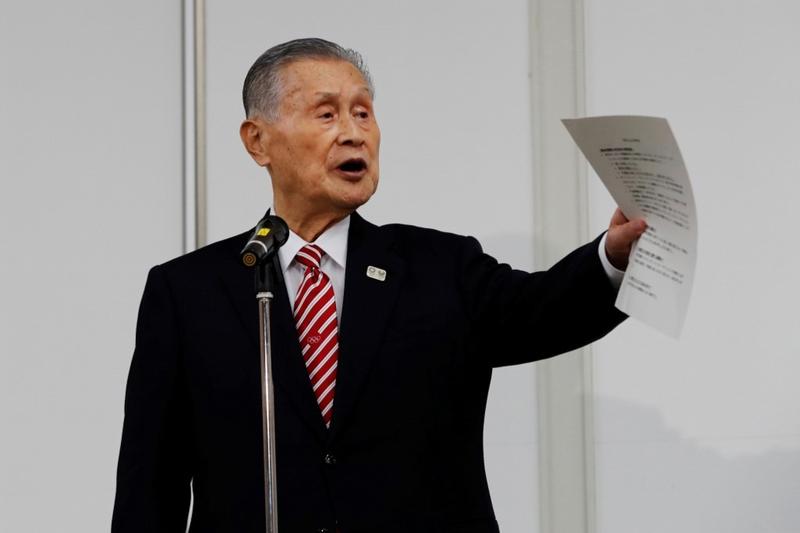 Tokyo 2020 president Yoshiro Mori speaks during a news conference in Tokyo on Feb 4, 2021. (KIM KYUNG-HOON / POOL / AFP)
Tokyo 2020 president Yoshiro Mori speaks during a news conference in Tokyo on Feb 4, 2021. (KIM KYUNG-HOON / POOL / AFP)
The head of the Tokyo Olympic Organizing Committee resisted calls for his resignation after igniting an uproar by saying women talk too much in meetings.
Yoshiro Mori later gave a news conference in which he told reporters his remarks were inappropriate, in conflict with the Olympic spirit, and that he wanted to withdraw them
Gaffe-prone former Prime Minister Yoshiro Mori, 83, made the remark Wednesday in response to plans to double the proportion of women on the board of the Japanese Olympic Committee to 40 percent from 20 percent. They came as the organizers published a playbook about how they plan to stage the delayed Tokyo 2020 Games this summer amid the pandemic.
“If you increase the number of women, you have to some extent limit the time for their remarks, otherwise you’ll run into trouble because it will never end,” he said. The comments touched off a social media firestorm, with hashtags including “Mori’s gaffe,” “Mori resign” and “embarrassment to Japan” all trending on Twitter in Japan on Thursday.
ALSO READ: Doubts loom over Tokyo Olympics without vaccine, isolation rules
The controversy is the latest headache for the organizers of the 2020 games, which were delayed to 2021 amid the pandemic. A survey this month showed only 16 percent of Japanese think the event should go ahead as planned this summer.
In comments livestreamed to the media, Mori added that he had found that Japan Rugby Football Union board meetings took twice as long after the number of women participants was increased. Women are highly competitive and if one speaks, then others also feel they must do so, said Mori.
Some research has shown that women tend to speak less than their male counterparts in meetings.
Mori later gave a news conference in which he told reporters his remarks were inappropriate, in conflict with the Olympic spirit, and that he wanted to withdraw them. He apologized, but said that he didn’t intend to resign.
“I have been working hard and dedicated myself to helping for seven years,” he said. “That’s not what I intend to do, but if everyone thinks I’m getting in the way, they may be right - maybe I’m an old fossil that should be swept out with the trash.”
Asked if women talk too much, he said: “I haven’t been listening to women talk recently, so I don’t know.” Later, Mori added that he himself talks too much.
Prime Minister Yoshihide Suga told a parliamentary committee he didn’t know the details of Mori’s comments, but that it was extremely important for women to participate in the field of sport.
Mori was one of the least popular prime ministers in modern Japanese history, leaving office after a little more than a year with an approval rating in the single digits. His tenure was clouded by scandals and a steady flow of missteps.
One of his most serious blunders as premier came in 2001, when he continued a game of golf after being told of an incident in which a U.S. submarine accidentally hit and sank a Japanese fishing boat carrying young trainee fishermen and their teachers off Hawaii. Nine people were killed in the accident.
READ MORE: Tokyo Olympics organizers unveil pandemic playbook
Japan’s political institutions are among the most male-dominated in the world. The country ranks 166th out of 200 on female representation in parliament according to the Inter-Parliamentary Union, far below Pakistan and Libya.
In response to the comments, Olympic judo medalist turned sports academic Noriko Mizoguchi urged Mori to use his position to eliminate gender bias.


